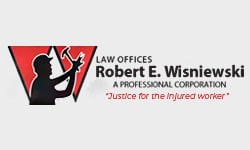Learn about your rights to compensation after an overexertion injury at work
Overexertion injuries refer to injuries that result from excessive or strenuous activities in the workplace. These injuries can occur in any type of work environment, regardless of the industry or occupation. Whether it’s lifting, pushing or pulling heavy objects, performing repetitive tasks or physically exerting yourself for an extended period of time, overexertion can lead to various musculoskeletal injuries. Workers’ compensation attorneys get this question all the time: Can I get workers’ comp for back pain?
The short answer is yes. Continue reading to learn more about your rights to benefits after a back or other injury caused by overexertion.

Statistics on overexertion injuries
About 22% of the injuries workers experience on the job involve some type of overexertion. Before 2020, these were the leading types of nonfatal injuries at work, but they have since been overtaken by injuries or illnesses caused by exposure to harmful substances or the environment.
According to the National Safety Council (NSC), overexertion at work contributed to the deaths of 7 workers in 2020 and caused injuries to another 255,490 in the same year. These injuries require a median of 14 days away from work, which exceeds the average for all types of work-related injuries or illnesses.
Sprains, strains and tears comprised 66% of all overexertion injuries, and 46% of injuries involved the trunk, primarily back injuries. Workers experienced upper body injuries as the second-most common affliction, with most having shoulder problems.
The industry group reporting the highest number of overexertion injuries at work was service-providing industries. This group reported 78% of all overexertion injuries. Trade, transportation and utilities reported the second-highest percentage of overexertion injuries at 36% of all reported work-related overexertion injuries.
What are the most common overexertion injuries in the workplace?
The most common workplace injuries that come from overexertion include the following:
- Strains and sprains (especially back strains)
- Carpal tunnel syndrome, tendonitis, thoracic outlet syndrome, and other repetitive strain injuries
- Muscle pulls and tears
- Hernias
- Shoulder injuries, like rotator cuff tears and tendonitis
- Knee injuries, like ligament tears (such as ACL or MCL tears), meniscus tears, or patellar tendonitis
- Heat exhaustion
What are some signs of an overexertion injury?
The symptoms of an overexertion injury vary based on the body part affected but may include the following:
- Fatigue, dizziness or fainting
- Difficulty catching your breath, dehydration or the inability to speak clearly
- Discomfort or numbness in the affected area
- Swelling and/or inflammation
- Muscle weakness or cramping
- Limited range of motion
- Sharp or throbbing pain in the affected area
- Difficulty performing certain tasks or specific movements
Sneaky Workers’ Comp Insurance Adjuster Tricks To Reduce or Deny Your Claim & How To Avoid Them
Be on the lookout for these signs of bad faith with your employer’s workers’ compensation insurance company.
What are the most common causes of overexertion injuries at work?
Lifting or carrying heavy objects without proper lifting techniques accounts for a majority of overexertion injuries. Other common causes include:
- Assuming an awkward position or prolonged posture while performing work duties
- Failing to use ergonomic tools or equipment, such as an ergonomic chair or computer desk
- Working in an excessively hot environment or under other extreme working conditions
- Holding, turning, carrying or wielding materials or equipment
- Pushing or pulling heavy loads
- Repetitively performing tasks or using certain tools, such as musical instruments, keyboards, cash registers, knives or carpentry tools
What types of workers are most likely to experience an overexertion injury?
- Construction workers
- Landscapers
- Flooring installers
- Health care workers and paramedics
- Firefighters
- Police officers
- Daycare workers and teachers
- Warehouse and logistics workers
- Retail and grocery store workers
- Airport workers
- Agricultural workers
- Assembly line workers
- Delivery workers
Eligibility requirements for workers’ compensation in Arizona
In Arizona, employers with 1 or more employees generally must provide workers’ compensation insurance, although a sole proprietor with employees does not need to provide the coverage for themselves.
Companies using independent contractors (1099 workers) are not required to provide them with workers’ comp coverage. Additionally, employees doing work for an employer casually or performing tasks not in line with the employer’s usual business may not receive coverage.
If an employee becomes injured and wants to file a claim, they must have sustained the injury or illness while performing their work, and the injury or illness must be work-related.
What’s the Penalty for Not Having Workers’ Compensation in Arizona?
Learn what to do after an injury if your employer doesn’t have the required workers’ compensation insurance.
Workers’ comp is a no-fault system
The workers’ compensation insurance system is called “no-fault” because, in most cases, employees can receive benefits for their work-related injury or illness regardless of who was at fault or whether their employer was negligent.
This means that the injured worker doesn’t have to prove their employer’s or another party’s negligence caused their injury to receive compensation for their medical care and other benefits.
Types of workers’ compensation benefits available
Injured Arizona workers are entitled to the following benefits:
- Medical benefits. All medical care and treatments for the employee’s work injury or illness, including doctor appointments, surgeries, medication, rehabilitation and medical equipment.
- Lost wages. Workers are entitled to two-thirds of their average weekly wage while they recover. The amount of time you can receive these benefits depends on how your disability is classified by a doctor: temporary partial, temporary total, permanent partial or permanent total disability.
- Death benefits. These include compensation for funeral costs and lost income for the dependents of a worker who suffers a fatal work-related accident.
Steps injured workers must take to file a workers’ comp claim in Arizona
Injured workers must take the following steps to be eligible for workers’ compensation benefits:
- Seek medical treatment and inform your healthcare provider that the injury occurred at work.
- Report your work-related injury or illness to your employer as soon as possible and preferably in writing.
- Your employer is required to notify their workers’ comp insurance carrier and the Industrial Commission of Arizona of your injury within 10 days.
- Fill out the appropriate forms, which include the Worker’s and Physician’s Report of Injury (obtained from your doctor) and the Worker’s Report of Injury form.
- File the forms; the form completed by your doctor must be filed within 8 days of treatment, and you must submit your injury form within 1 year of your injury date.
- Follow your doctor’s prescribed treatment and attend any required medical evaluations.
- Consult with a workers’ compensation attorney to ensure you don’t miss any critical steps in the process.
How to prevent overexertion injuries at work
Workers should take the following steps to help prevent overexertion while performing their work duties:
- Ask for assistance to perform strenuous tasks.
- Manage overexertion symptoms by staying properly hydrated, stretching to avoid muscle cramps, and taking breaks to relax muscles during heavy exertion.
- Practice proper lifting techniques and ergonomics.
- Use equipment or mechanical aids to assist in heavy lifting and repetitive types of work.
- Take regular breaks and rotate tasks to avoid prolonged exertion or repetitive motions.
Contact an experienced Arizona workers’ compensation attorney
If you suffered an overexertion injury or any other kind of work-related injury or illness, make sure you understand your rights to compensation and the steps that must be taken to secure those benefits. Consider contacting an experienced workers’ compensation attorney for help with the process, especially if your workers’ comp claim is initially denied.
If you live in Phoenix and have been injured on the job, the knowledgeable work injury attorneys at the Law Offices of Robert E. Wisniewski are here to help. We specialize in workers’ comp cases and are proud to have been helping injured Arizona workers recover the compensation they deserve for more than 45 years.



